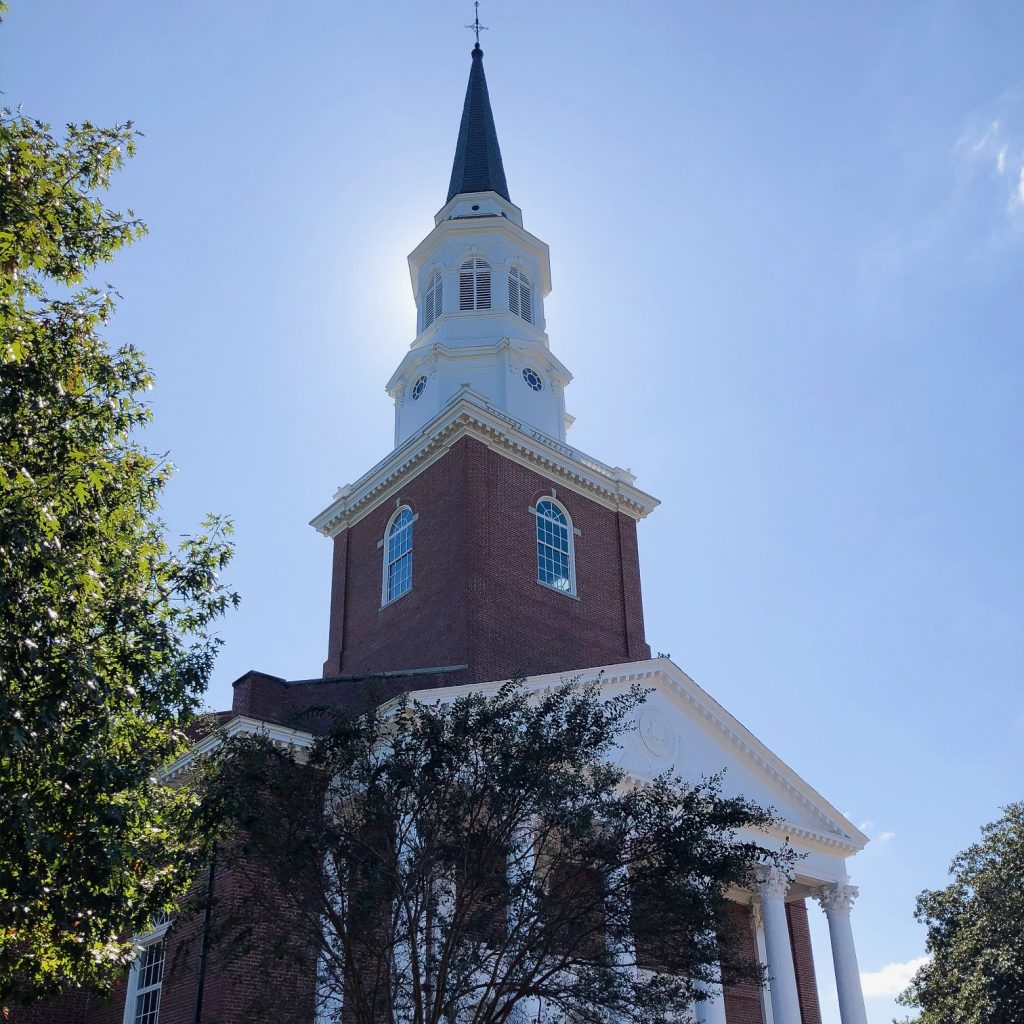1 Peter 2:4-10
There’s a hazard in Christianity of forgetting who we truly are in Christ. We talk so much about sin and about being sinners, rightly so, but we sometimes forget the rest of the story. Have we gotten so caught up in our own sinfulness that we have felt defeated, unloved, even rejected by God?
Sin is a part of our story. By nature, we are objects of God’s wrath, his enemies, wholly rejected by him. But the story doesn’t end there.
Even in the depths of our sin, God called to us, inviting us to come to him. We came as sinners. But Peter reveals the glory that has been ascribed to us through Christ as believers. Now we are his church, his bride.
Throughout the Old Testament, God primarily uses the temple as his dwelling place, the central place of worship for the people, and the earthly representation of his glory. Peter takes a few verses in his letter to contrast the church with that temple. But Peter isn’t talking about the New Testament church as a building, even those beautiful, majestic buildings downtown. He speaks of it as the people of God, those who have believed in Jesus and are saved by him.

The foundation of the church is Jesus, our cornerstone (2:6). He is the starting place, the essential and indispensable foundation on which the church is built, rejected by men but precious and chosen in the sight of God (2:4). He is the living stone (2:5), the first among many who will be built up in him and through him to become the church of God. This church is living and growing, in size and in maturity, just as its stones live and grow and as new believers join its ranks.
We are the spiritual house (2:5) of the Lord, the new temple. We are where God dwells, within his people through the indwelling of the Holy Spirit. And because he resides in us, we are also where his glory dwells. We are walking, talking beacons of God’s glory, and together as a church we become a pillar of fire declaring who God is to this world.
We are a holy priesthood (2:5). There is no longer an elite class of priests who has special access to God or higher status within the church community. All believers have unfettered access to God, all are set apart to offer spiritual sacrifices (2:5) like praise and worship, thanksgiving, gifts and service, and even our very lives (Rom. 12:1). The whole temple system of separation – Gentile to Jew, woman to man, man to priest, human to God – all the separations have been demolished, creating something wholly new, a priesthood of believers. This honor and privilege of access, indwelling, and glory is ours not because we are worthy of it, but because his Son is worthy of everything.
Now we are a chosen race (2:9), chosen by God like a man wedding his bride. God declares us a holy nation, set apart in devotion to him and his glory, belonging together in unity and shared identity. We are a people of his own possession; we are his and he is ours. We are purchased, ransomed, redeemed and bought at a price, so that no one else has claim on us. We who God once declared “not my people” (Hos. 1:9) are now called God’s people (2:10). Our identity is established for all eternity because we bear the name of the God most high. Once we had no mercy, because God doesn’t give it to those who reject him. But now we have all his mercy, because he gives it freely and abundantly to his own (2:10).
You and I, we dwelt in darkness, in sin and death, captivity and slavery, loneliness and desperation. But God our Father called us out of that darkness and into his marvelous light (2:9), into life, redemption, righteousness, freedom, forgiveness, justification, intimacy, contentment, joy, peace, and abundance.
And he did it so we could proclaim the excellency of him who called us (2:9). The church, this living, growing masterpiece of God’s glory roars praise of our Jehovah El Elohim, the Lord God of gods, the Lord God over all.
Lord, we are rooted and established in you, built up on you, our rock and our cornerstone. We are your church, your bride. You poured yourself out for us; may we now pour ourselves out for you. By your Spirit, help us to shine your light into the darkness, to be the light of your glory here to this world. May our fire burn bright as we are united as one in you, a fire that cannot be quenched. Amen.







